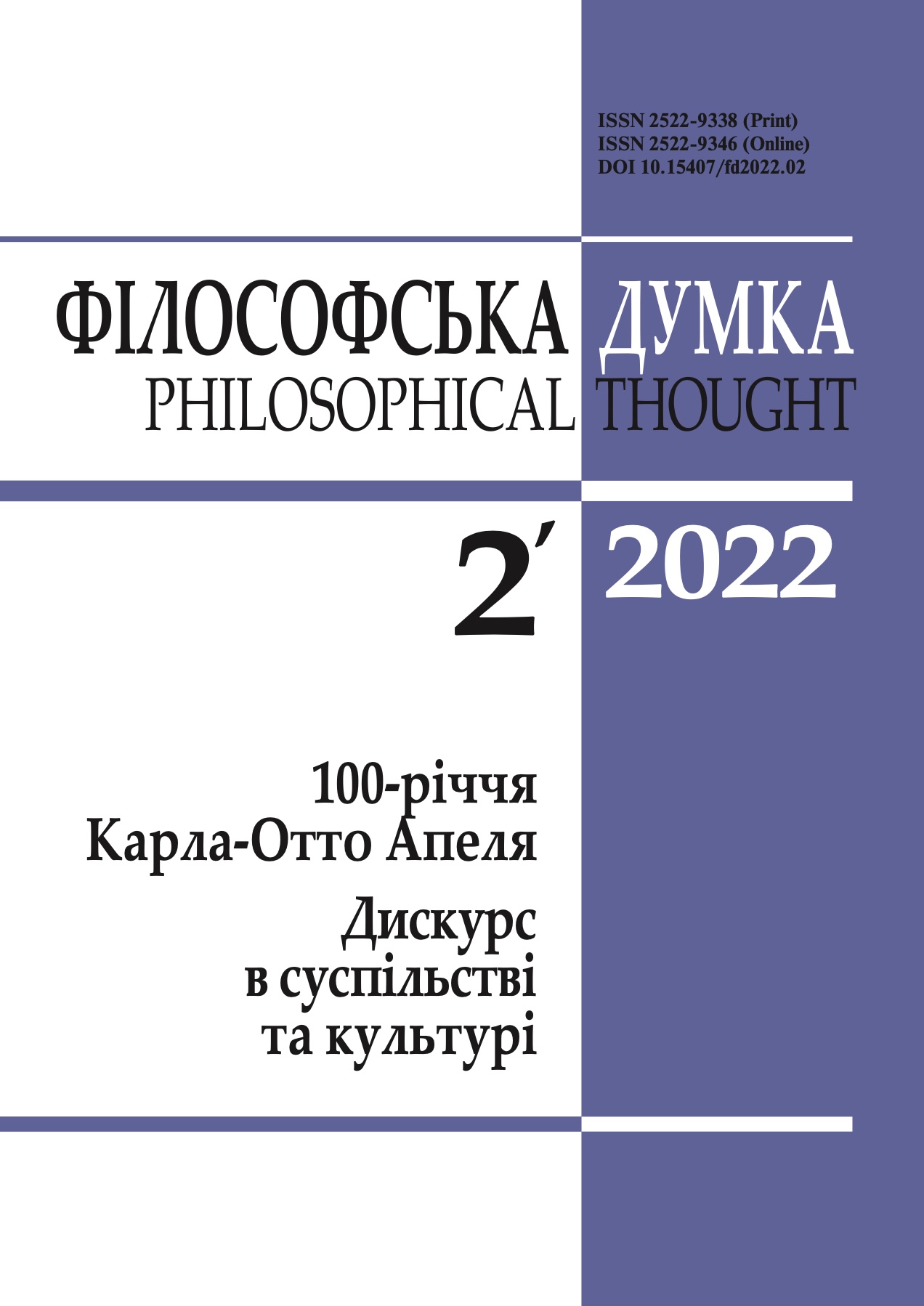PUBLIC POLICY IN THE DISCURSIVE CAPTIVITY OF «POLITICAL SCIENCE», «JURISPRUDENCE» AND «MANAGEMENT»
DISCOURSE IN SOCIETY AND IN CULTURE
DOI:
https://doi.org/10.15407/fd2022.02.096Keywords:
discourse, state, public policy, political science, law, management, goal, problem, options, impacts, interests, stakeholders, resourcesAbstract
This article outlines a discursive framework for understanding public policy uses in different narrative contexts. The framework describes a definition of the term «discourse,» its historic and intuitionally related nature, and how descriptions of «state» and «policy» transforms into legal, political science, managerial, and «public/state policy» discursive practices. The author postu- lates that the discourse of public policy is a place of a «clash of rationalities» in the industry. Because of this, the SS concludes that the essence of public policy, its perception, understanding, and reaction to it are determined by the dominance of certain institutional discourses and the dominance of their bearers: «political scientists», human rights defenders, lawyers, managers and their ideas about the nature of the state and its «politics». The dominant discourses have the na- ture of uncritical extrapolations, or transfers of certain rationality inherent in one area to another, qualitatively different from it. The consequence of such an expansion of rationality from one sphere to another is the «inadequacy» of the discourse. It then discusses a comparative explica- tion of fundamentals, which constitute the narrative practices of each discourse. Furthermore, it proposed an explanation of the subject specifics of «public policy» as an area centered around «problems,» «options,» «impacts,» and «interests / stakes,» and then traces the significant distor- tions and contortions of this topic in the semantic horizons of related discourses. The article focuses on the rising issues of public policy, depending on the specifics of the discourse — whether «political», «legal,» or «managerial». For example, «political science» discourse emphasizes the problems of the consequences of one of the dimensions of influence for the interests of different parts of society; «Legal» discourse focuses on one group of instruments of influence (norms); «Managerial» discourse draws attention to a separate stage of implementation of already estab- lished public policy. Finally, this paper indicates the dominance of such discourses and their dependency on the historical context of contemporary Ukraine.
References
Douglas, M. (1986). How Institutions Think. S.l.: Syracuse University Press.
Foucault, M. (2003). Archeology of knowledge. [In Ukrainian]. Kyiv: Solomiya Pavlychko Publishing House «Osnovy».
Hayek, F.A. (2002). Constitution of freedom. [In Ukrainian]. Lviv: «Litopys».
Yermolenko, A.M. (1999). Communicative practical philosophy. [In Ukrainian]. Kyiv: Libra.
Downloads
-
PDF (Українська)
Downloads: 208
Published
How to Cite
Issue
Section
License
Authors who publish with this journal agree to the following terms:
- Authors retain copyright and grant the journal right of first publication.
- Authors are able to enter into separate, additional contractual arrangements for the non-exclusive distribution of the journal's published version of the work (e.g., post it to an institutional repository or publish it in a book), with an acknowledgement of its initial publication in this journal.
- Authors are permitted and encouraged to post their work online (e.g., in institutional repositories or on their website) prior to and during the submission process, as it can lead to productive exchanges, as well as earlier and greater citation of published work (See The Effect of Open Access).


